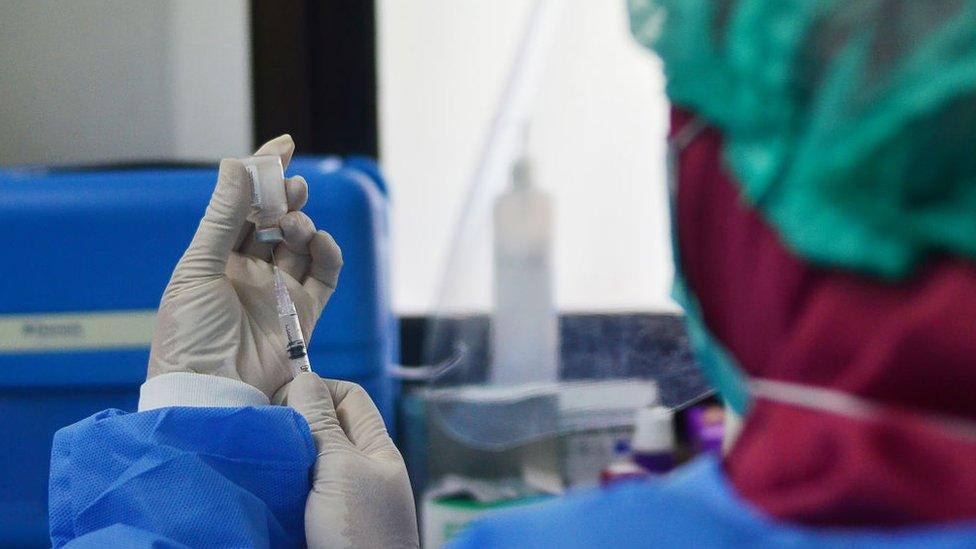Covid vaccine: 'Unknown' schedule for care home residents in Wales
- Published
- comments
How will the vaccine work and who gets it first?
It is not yet known when all care home residents in Wales will be able to receive a Covid-19 vaccine.
The UK has become the first country in the world to approve the Pfizer/BioNTech coronavirus vaccine for widespread use.
But Wales' chief medical officer Frank Atherton could not say when care home residents would receive it due to storage temperature requirements.
Care home residents and staff are among those identified as a top priority.
Other priority groups include health and social care workers and over-80s.
The jab offers up to 95% protection against Covid-19 illness and the Welsh Government hopes the first vaccines will be given within seven to 14 days.
Who will get the Pfizer vaccine first?
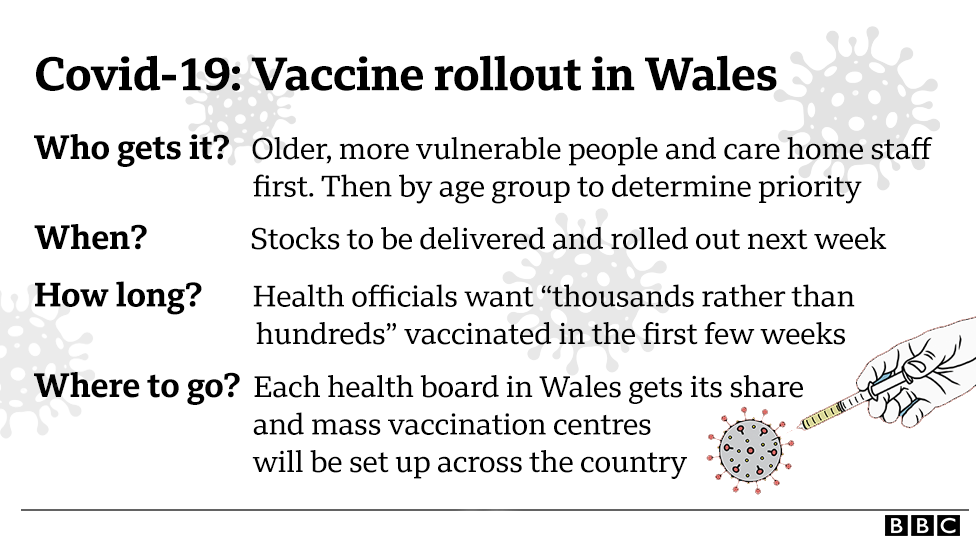

But Dr Atherton said getting the vaccines to care homes was a "work in progress" and "very difficult" to do because it needs to be kept at a temperature of about -70C.
Initially it will have to be provided to a limited number of sites, he said.
"We're trying to find ways, even with this vaccine, to provide a more disseminated approach to distribution.
"There are of course other vaccines in the pipeline - the Oxford vaccine for example which doesn't have such stringent requirements around temperature management and control.
"As that comes online, as we hope, that will that will give us a further ability to work our way through those priority lists."
Covid vaccine a 'glimmer of light' for Wales
Dr Atherton added: "I can't give you an exact date or a time frame, but we're working through that process as quickly as we can.
"Because those elderly residents, usually elderly in care homes, are one of our highest priorities."
Wales' First Minister Mark Drakeford said "it is a case of people having to go to the vaccine, rather than the vaccine going to the people" because of the need for cold storage.
He added: "Other vaccines will come through the system that will be able to reach people who live in care homes, and as soon as that is the case, it is what we will do."
When will younger people get the vaccine?
Everyone over 50 will be offered the vaccine in the coming months.
The priority 10 groups represent 60% of the population but also 99% of all deaths linked to Covid-19.
It will be "well into next year" before the entire Welsh population has been vaccinated against Covid-19, Dr Atherton said, adding it would be "a massive undertaking".
Vaccines for younger people will be available after the over-50s have had their jabs, according to Gill Richardson, who chairs the Welsh Government's Covid-19 vaccine programme board.
How will people get the vaccine?
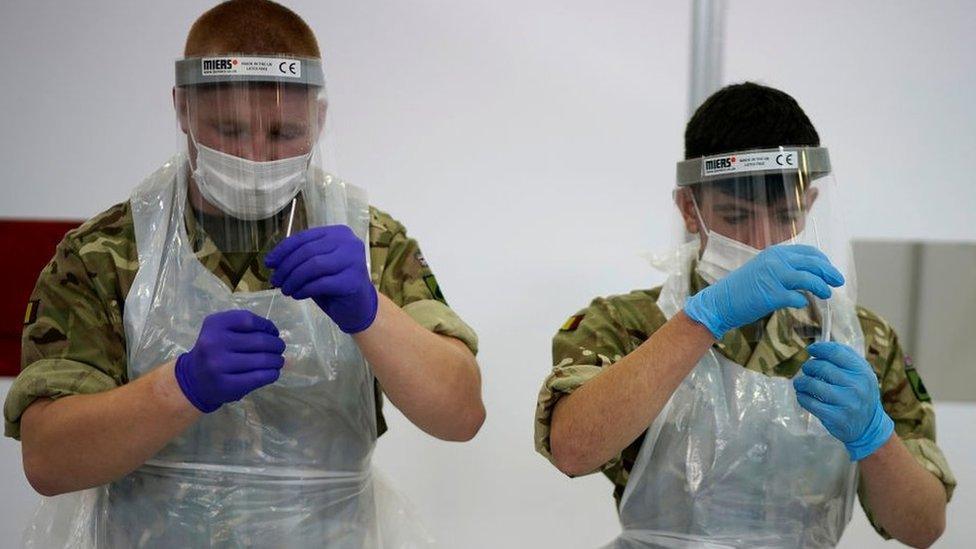
Dr Richardson said the Welsh Government was taking steps to ensure the vaccination programme did not affect other NHS services.
"People will be invited to come and have the vaccine through the NHS - we'll be holding special vaccine clinics to make sure people can receive the jab, while keeping normal NHS services free to see people," she said at the Welsh Government press briefing.
Will the vaccine be mandatory?
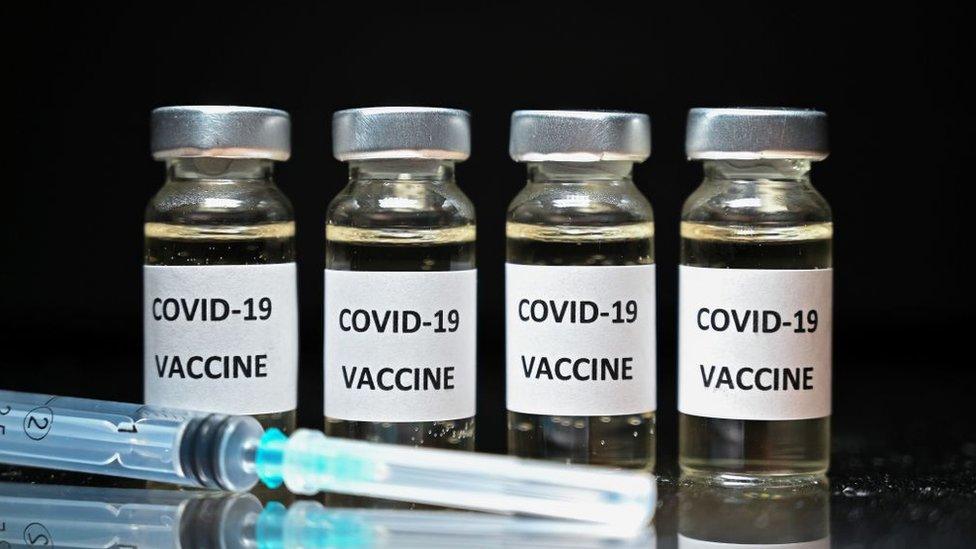
"The vaccine is the best way to protect people, but no-one will be forced to have it if they don't want it," Dr Richardson said.
Dr Atherton added that a Public Health Wales survey had shown that 70% of people would be willing to have the vaccine, and 60% would want their children to have it.
There are plans for people who have had a jab to be given a record card but it is not anticipated that hospitality businesses in Wales will turn away people who cannot prove they have been vaccinated, according to Dr Richardson.
"We hope that people will come and have this extremely precious and significant commodity for free of their own volition, but there's no compulsion," she said.
The Welsh Government said two areas had been identified as appropriate delivery sites for the vaccine and local health boards would collect the vaccines directly from these sites.
Dr Richardson declined to say where the sites were, but added: "We have looked very carefully at all the storage parameters and also ease of distribution so we can get this vaccine out as swiftly as possible to the immunisers who will need it in each of the health boards and trusts."
When can I get a Covid vaccine appointment?
People will be sent appointments with details of the location where they will receive the vaccination, dependent on where they are in the schedule and risk, it added.
First Minister Mark Drakeford said: "Today's news is a small glimmer of light at the end of what has been a long and dark tunnel...
"We must all continue to do our bit to prevent the spread of coronavirus - regular hand washing, social distancing, and wearing a face covering where required to protect yourself and others."
Is it safe and effective?
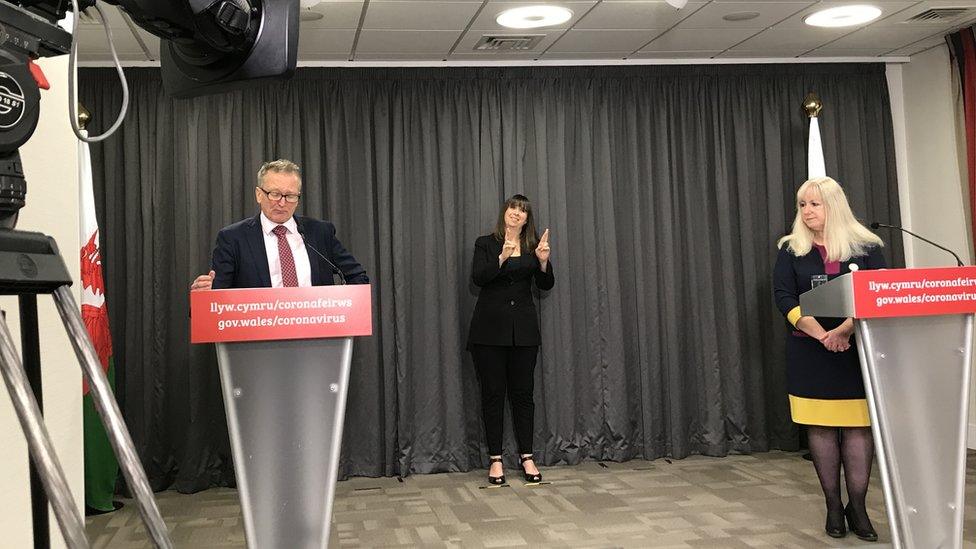
Dr Richardson said the vaccine was "very safe"
Dr Richardson said serious side effects from the new vaccine were "extremely rare".
She said people might get a sore arm or occasionally a raised temperature, but "it's a very safe vaccine".
She added that the "safety profiles" were "really good" for the elderly and those that have clinical conditions.
"We are extremely pleased to be offering what we feel is a very safe vaccine to the Welsh population," she added.
Dr Atherton said it was not yet known whether the vaccine will stop transmission of the virus.
He said it is known from data submitted by the company "it's pretty good" at stopping people getting infected and having serious infections.
"We just don't know yet whether it will stop transmission," he told the press briefing.
"That will only be known to us in the fullness of time when vaccines are rolled out."
What has been the response?
Welsh Secretary Simon Hart said: "This is fantastic news and is what we have all been waiting for… it is vaccines like this one that will give us the protection needed to reclaim our lives."
Liz Saville Roberts, the Plaid Cymru leader in Westminster and MP for Dwyfor Meirionnydd, said the news was "fantastic" and there was "a cloud beginning to lift", especially for those in care homes and people who have been isolated.
"There's this prospect of being reunited with loved ones," she said. "We really need some hope. It's such good news."
Conservative MS for Aberconwy Janet Finch-Saunders said she had no concerns about the plans for the mass vaccination.
"The concern was always about whether a vaccine could be found and whether it would be approved, so today is a good day," she said.
As the NHS prepares for a challenging winter, with the additional pressures of delivering the vaccine, staff welcomed the news.
Dai Samuel, a consultant hepatologist at the Royal Glamorgan Hospital who had coronavirus earlier this year, said: "Excellent news and reflects the immense efforts and superb work undertaken by the medical research community."
Allow X content?
This article contains content provided by X. We ask for your permission before anything is loaded, as they may be using cookies and other technologies. You may want to read X’s cookie policy, external and privacy policy, external before accepting. To view this content choose ‘accept and continue’.

The Pfizer vaccine: How does it work?
It is a new type called an mRNA vaccine that uses a tiny fragment of genetic code from the pandemic virus to teach the body how fight Covid-19 and build immunity.
The UK has already ordered 40 million doses - enough to vaccinate 20 million people, as two shots are needed.
It is the fastest ever vaccine to go from concept to reality, taking only 10 months to follow the same developmental steps that normally span a decade.


- Published2 December 2020
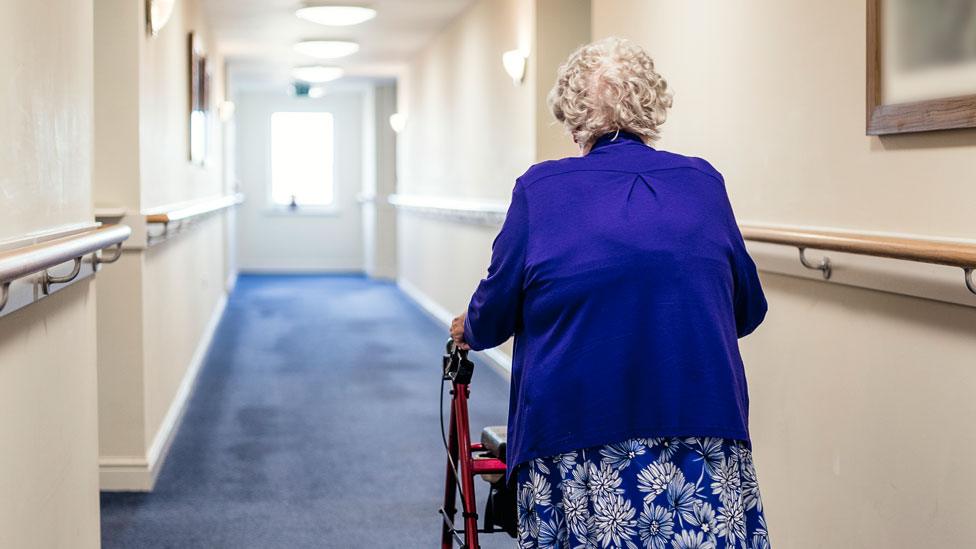
- Published2 December 2020
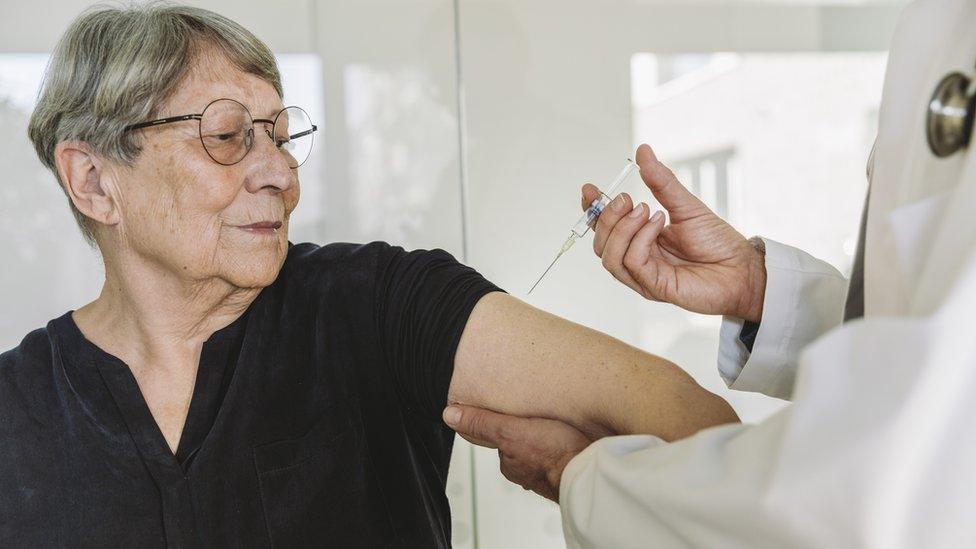
- Published15 February 2022
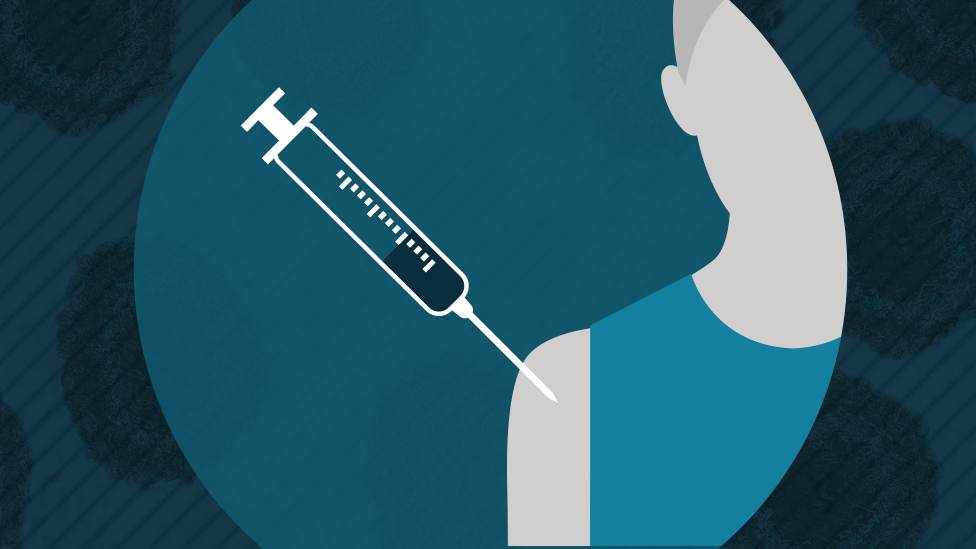
- Published1 December 2020
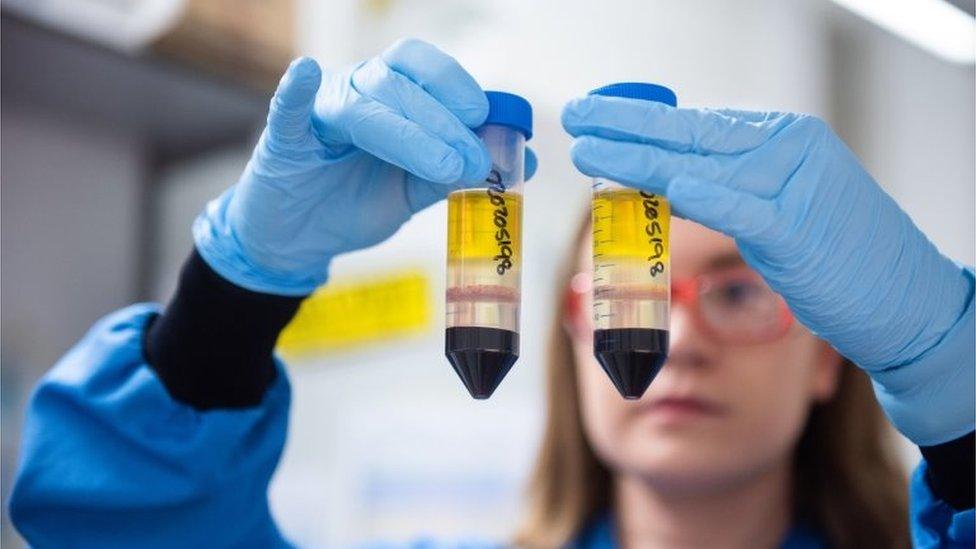
- Published9 November 2020
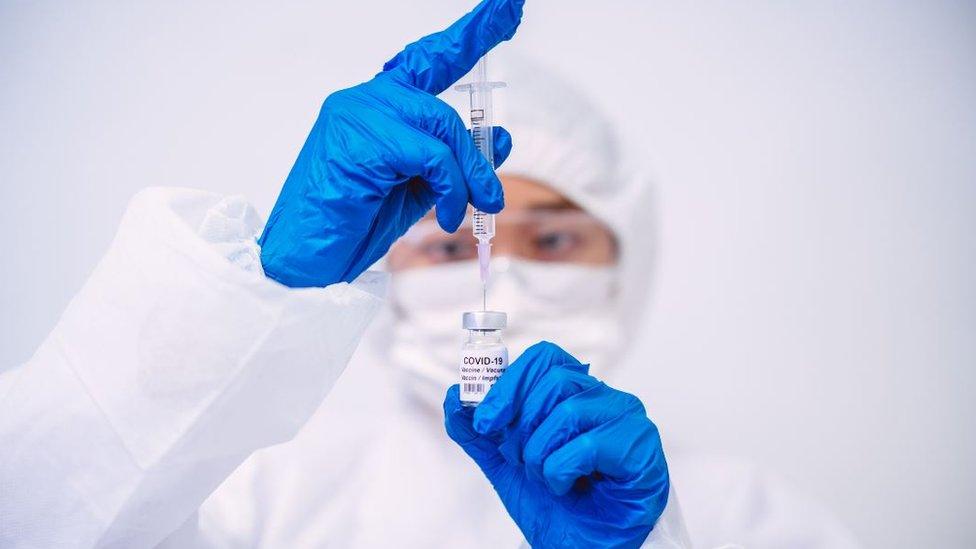
- Published30 November 2020
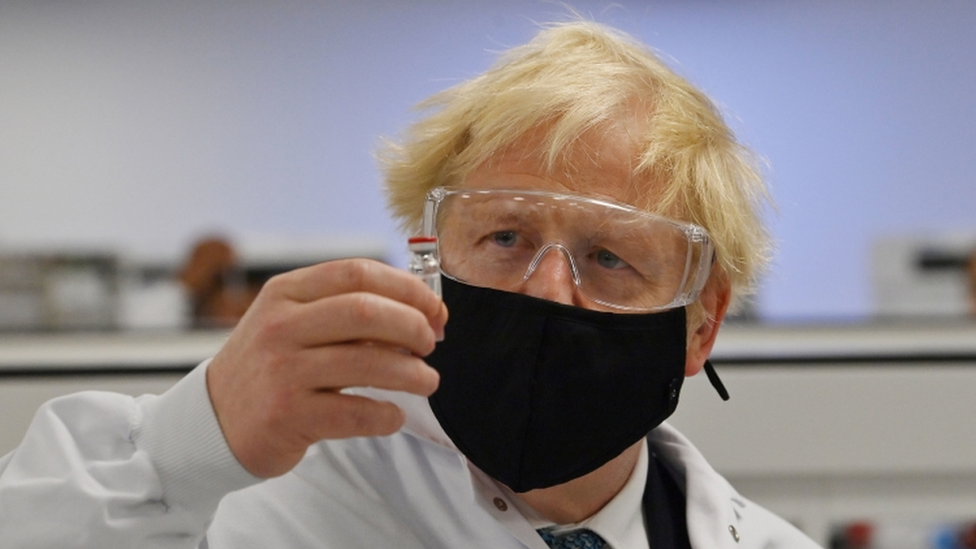
- Published24 October 2020
